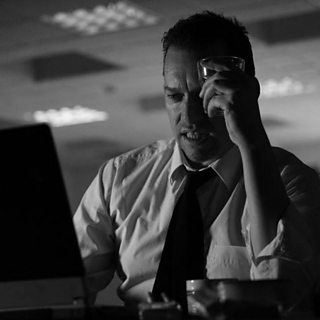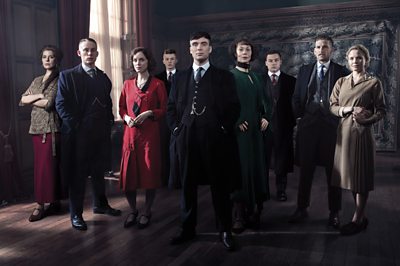
Peaky Blinders is back! The third series of the multi-award-winning gangster epic is currently rattling along and you can catch up with any action you’ve missed over on the show’s official website.
We’re delighted to bring you an interview with Peaky Blinders’ writer and creator, Steven Knight.
Question: This period in history is scarcely represented on UK television screens. What was your motivation and inspiration for creating Peaky Blinders?
Steven Knight: The inspiration was motivated by stories I was told by my parents who lived in Small Heath, Birmingham and both had connections with illegal bookmakers as many people had in those days. My mum was a bookies’ runner at nine years old and my dad’s uncles were Peaky Blinders and gangsters. He told me lots of stories about how they looked, how they dressed and how people felt about them and how life was in those days, so I always felt this was a drama waiting to be told.
Q: Has there been a particular scene that you have written for Peaky Binders that, on seeing the final version turned out to be better than you ever imagined?
SK: The execution scene at the end of series two, where everything came together beautifully; it was brilliantly directed and a brilliant performance by everyone concerned, particularly Cillian. That is the scene that I had most satisfaction with of anything I have ever written.
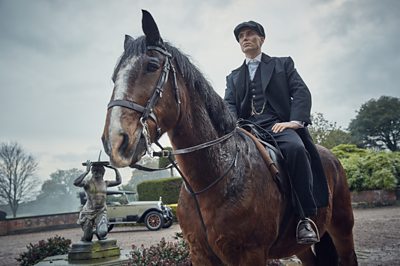
Q: When you sat down to write the third series had you already mapped out the journey or do you approach each series individually?
SK: I never map things out in advance. It would be better if I did and more economical in terms of time, but I’ve found that if you work out a plot line from beginning to end, at the beginning it becomes very rational. I prefer to just start writing because I find the process of writing offers all sorts of random possibilities that are much more like life - far-fetched and unbelievable.
Q: When you created the series, was Tommy Shelby always your central character?
SK: It always began with that central character of Tommy. He was always going to be the second oldest, so that it was not a natural thing for him to be in charge, proving that he is in charge for a reason.
Q: How have the actors grown into their roles over the course of the three series?
SK: Cillian began with Tommy as a man with a mission; someone who was going to change things right from the opening scene in episode one, series one. He was in a situation where, following the First World War, he felt dead already and so he could break the rules. He was broken by what he saw and what he experienced. He could have made a choice to kill himself but he decided to carry on. In series two he experienced success and getting what he always thought he wanted, and now in series three he is questioning that.
I think Cillian mapped that out beautifully all the way through, from the first to the last moment of this series so far. He is such a fine executor of a character’s progress. It’s a long process in television, unlike in film where you can really get your hands round a character quickly.
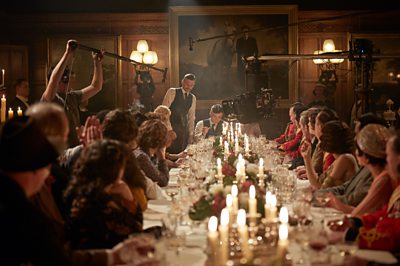
Q: How much are you involved in the design and look of the show?
SK: Luckily, we are not starting with a blank canvas now we are two series in. We want to keep the show embedded in this world because it works, and the audience like it but because the characters have moved on they are in different places now, with bigger environments and more opulent homes, so the direction and the style moves along with it. It is an evolution rather than a revolution.
Q: You’ve said in the past that series one was opium, series two was cocaine, what is series three?
SK: Opium was essentially used by people who were trying to alleviate acute pain and that seemed reflective of the tone of the first series. The second series was cocaine reflected by the wildness and the madness of the early 1920s. People were revving it up and getting into gear.
In the third series I think it is power and the effect that has on people; how they respond to it and how intoxicated they can become as a result of it. Even though the other drugs are still around in series three, it is more of an existential thing for Tommy.
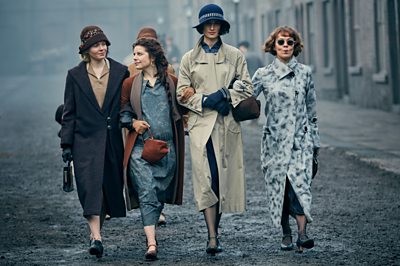
Q: What are the main themes of series three?
SK: The themes that are prevalent are power, the abuse of power, and the effect that power has on Tommy and the family. It is also about how everyone is trying to escape where they are. It’s a question of, are any of them able to escape? Can any of them get away from their past, the history, and in a sense their destiny?
It’s about aspiration and if you look at it sociologically, it’s about people from the working classes in England and can they ever - no matter how much money or material wealth they have accumulated - ever escape where they are from.
Q: What sort of man is Tommy at the start of series three?
SK: Tommy’s trajectory is always upwards, but it’s never smooth and never simple. He has to do things at the request of some very powerful people and all of it illegal as ever. The consequence of his success will be huge. Already he has made a lot of money and his living standard is unrecognisable from when we first met him at the beginning of series one and that trajectory will continue. His is a cash business and he is converting that cash into objects.
Q: The character of Arthur Shelby is fractured and torn. How has Paul Anderson reacted to the various twists and turns his character has taken?
SK: Paul Anderson, particularly in series three, is playing a character at a crossroads in his life because of the woman he has married, and is having to examine his loyalties to her and the Shelby family. He really has to explore if he’s able to escape the world he’s living in and consider if he is fit to do anything else in life. Paul has tracked that beautifully in his portrayal of Arthur, in not just this series but throughout.
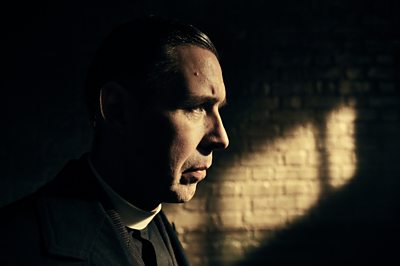
Q: How much of Alfie Solomons was on the page and how much did Tom Hardy bring to the role?
SK: On the page is the ‘stuff’; the stuff he’s got to do and he has to make it from A to B and with Tom in particular, almost exclusively, there is a lot of improvisation that is very exciting. But the most important thing is that Tom arrives with the character and the character is so manufactured in the moment that it is fantastic to watch his performances unfold.
Q: What does Paddy Considine bring to the role of Father John Hughes?
SK: To get Paddy to play this part was sensational because he is just so, so good. And one of the great pleasures of this series is that I know I can write Cillian and Paddy together and just know that it is going to happen. It is brilliant.
Q: The opening of the series is multi-layered. We have the backdrop of the wedding and a deal going down with Russians, all in front of the bride’s gathered guests. Was this always your vision of Tommy’s happy day?
SK: Tommy’s wedding is a typical Birmingham wedding - a big fight and a family dispute. I like the idea of kicking everything off together in the same place and weddings are great for that and technically it is a great way to meet the family again. I wanted to explore the idea of when business meets family, which has essentially been what Peaky Blinders has been about right from the beginning. Can the two be separated? What we see in this series is how the two collide.
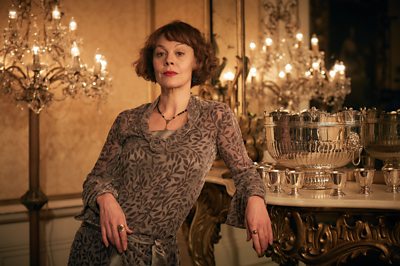
Q: Polly is such an important character within the family. How does Helen McCrory make this role her own?
SK: The entire show is almost like a dance where the characters all go hand in hand, and always there with them, between them, arm in arm, is Polly. Helen McCrory is simply the mistress of all of this. She is so good at being scary, being formidable, being vulnerable - and especially in this series we see this vulnerability much more at the fore. It’s a real joy to have actors of this calibre to take these characters on.
Q: Are there things that you already have planned for the Shelby family further down the line?
SK: I want the family trajectory to continue upwards and for them to become wealthier and more powerful. The only thing I want to do is for Tommy to become knighted - to become Sir Thomas Shelby for various nefarious reasons…
Big thanks to Steven Knight, and don't forget we've loads more Peaky Blinders extras at the show's official website!
